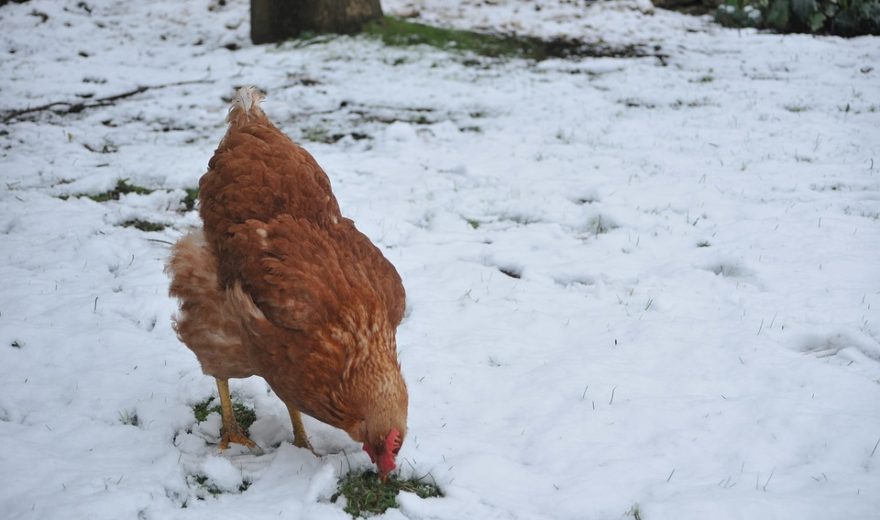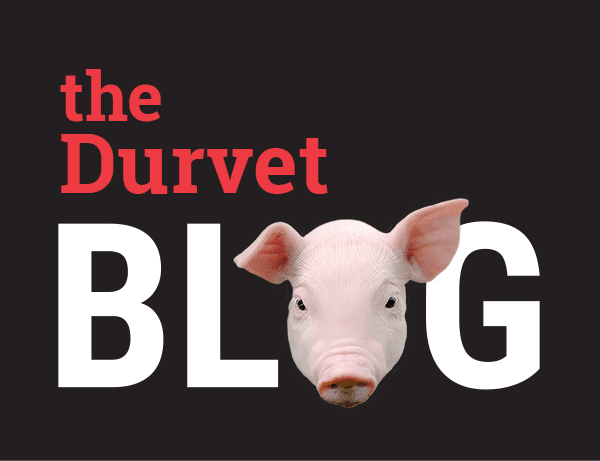
Winter can be a tough time of the year for those of us who raise chickens.
We're faced with dark and cold mornings, continual temperature drops, and decreased egg production.
The good news? Winter doesn't have to be detrimental to us or our chickens. We can several steps to prepare the coop and hens for winter just like we do everything else on the farm.
#1 – Get Your Coop Winter Ready!
Mother Nature can be tricky. You need to prepare the coop for some fairly extreme environments (this can vary depending on your location).
Block drafts and be sure to keep the snow out. Use your preparation time to inspect the entire coop, checking to make sure there aren't any avenues for predators to make their way in.
You don't want to completely seal the coop, so be sure to leave room for ventilation. Along with the coop, you must also make adjustments to the run. We generally add a tarp along one side to prevent extra wind coming in.
#2 – Keep the Ladies Laying!
If you let nature take its course, your egg production will come to a complete halt. To prevent this, one option is to add lighting in their coop.
Hens need about 14 hours of daylight every day to produce an egg, so you can set a timer to come on in the morning about 5 a.m., shut off about 8 a.m., come back on about 4 p.m., and go off again at about 9 p.m.
In addition to requiring simulated daylight, chickens use more energy in the winter to keep warm. This means they're using up more ‘resources’ that they could be using for egg production.
Offering them Layer Boost as a supplement can help refill this depletion of resources. Additionally, during the winter months, it's absolutely necessary to make sure they have an adequate supply of feed at all times.
#3 – Nutrition and Supplements
As the chickens are using more of their resources to keep warm during the winter months, their bodies are changing. Hens typically consume 1.5 times the amount of food they eat in the spring and summer.
Cracked corn is a great addition in the winter. It's more work for the digestive system, which produces more heat inside the hen’s body. Another crucial piece for your chickens will be grit. Once the ground is frozen, there's less of a chance for them to find natural grit, so providing them with a supply is a must.
Additional supplements such as Vitamins & Electrolytes and ProBiotics Daily will also help keep your flock in tip-top shape during the winter months.
#4 – Winter Molting
Most chickens are either coming off a fall molt (See our post on Fall Molting) or halfway through a molt, however sometimes they do molt during the winter months.
During any molt, chickens need extra supplements and care. We use Poultry Power during this time along with Vitamins & Electrolytes. Both help your birds build new plumage.
#5 – Fresh, Non-Frozen Water
Access to fresh water is the most crucial thing to take care of during winter for your hens, who are made up of roughly 70% water. Hens are much more sensitive to lack of water than feed, so keeping an eye on this should be a top priority.
They consume 1.5 times more water than feed. The biggest issue will be preventing their water from freezing. Once temperatures reach freezing, it's best to use a heated waterer. This will prevent any ice from forming and will allow your chickens to have access to water without worry. Another option would be to use a thermostatically controlled timer that will come on at your desired temperature.
The winter months can be cruel and unruly, but if you're prepared and have a plan for your flock, the months will fly by and the warmer spring months will be here before you know it!
Sources:
Damerow, G. (2015). The Chicken Health Handbook (2nd ed.) Pgs. 299, 319, 104, 108

 BACK TO MAIN BLOG
BACK TO MAIN BLOG 
Comment